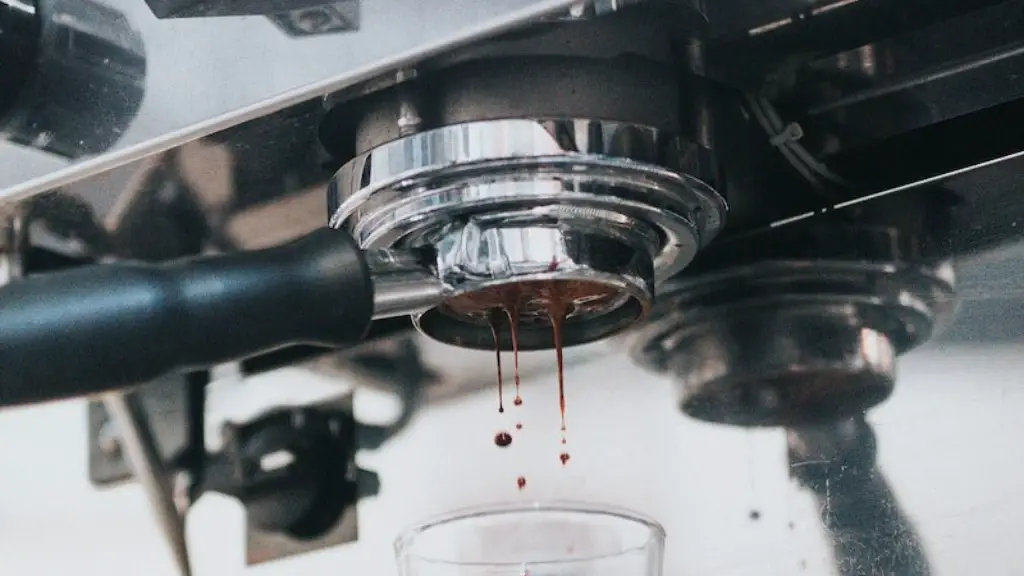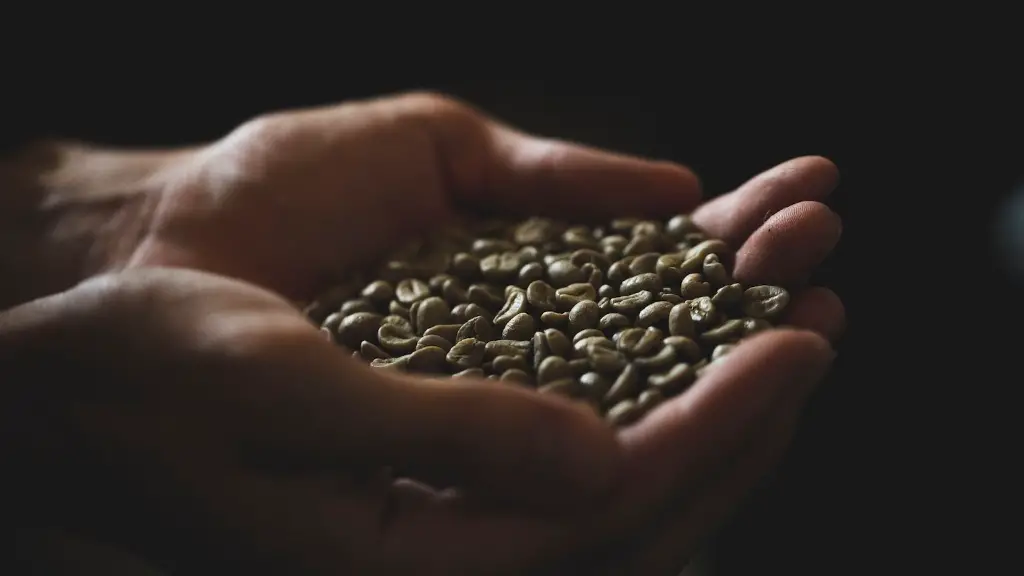Coffee is a popular beverage around the world, but it may be counter-productive for people with high blood pressure to indulge in it on a regular basis. Not all coffees are created equal, as some contain more caffeine and other chemical additives than others. For people with hypertension, having more than one cup of coffee daily might not be the best decision.
First, it is important to understand the cause of high blood pressure. High blood pressure, or hypertension, is caused by an imbalance between the hardness of the arteries and the resistance of the veins that carry blood back to the heart. When the resistance to the flow of blood increases, the pressure in the arteries rises. When the pressure is too high, it becomes harder for the heart to pump blood, leading to serious long-term health problems.
When it comes to caffeine, it is also essential to understand its effects on the body. Caffeine is a stimulant; when ingested, it causes a spike in blood pressure. This spike has been routinely documented during clinical trials and is generally short-lived; it is highest within an hour of drinking the coffee and then generally appears to fade with the passage of time.
Moreover, caffeine might interfere with the effectiveness of medications used to control blood pressure. Therefore, it is best for people with high blood pressure to talk to their doctor first before drinking coffee, to inquire about the effects of caffeine on their medication.
From the perspective of a medical expert, it is generally accepted that individuals with hypertension should not consume more than two cups of coffee per day. People who consume more than two cups per day will increase their risk of developing hypertension-related complications, such as stroke and heart attack.
It is also important to note that coffee can be beneficial if consumed in moderation. Studies have shown that drinking two cups of coffee a day can help lower the risk of cardiovascular disease for people with high blood pressure. Additionally, coffee can help improve mental alertness and reduce fatigue.
In conclusion, the effects of coffee on people with high blood pressure vary greatly. Moderate coffee consumption can be beneficial in the short-term, but overconsumption can increase the risk of hypertension-related complications. Individuals with high blood pressure should talk to their doctor before making any dietary changes.
Alcohol Intake and High Blood Pressure
It is a well-known fact that regularly drinking alcohol can result in high blood pressure. Alcohol has long been linked to cardiovascular problems, such as hypertension, stroke, and heart attack. Indeed, it is thought that drinking more than the recommended maximum of two drinks daily may increase the risk of hypertension.
Furthermore, the type of alcohol consumed can also play an important role in determining the risk of developing high blood pressure. Drinks with a higher alcohol content can be more damaging to the heart and blood vessels than drinks with a lower alcohol content. Additionally, it is important to note that alcohol can also interact with certain medications used to treat high blood pressure, potentially making them less effective.
From the experts’ perspective, it is best for people with high blood pressure to avoid excessive alcohol consumption. The 2015–2020 Dietary Guidelines for Americans recommends that women should not consume more than one alcoholic drink a day, and men should not consume more than two. Additionally, limiting alcohol consumption to special occasions or social events can be helpful in avoiding long-term health problems.
Overall, it is important for people with hypertension to understand the impact of alcohol consumption on their health. Moderation is key when it comes to alcohol intake, and people with high blood pressure should talk to their doctor before making any dietary changes.
Adapting the Diet to Manage High Blood Pressure
Aside from limiting their intake of coffee and alcohol, people with high blood pressure can also reduce their risk of developing long-term health problems by making dietary changes. A heart-healthy diet has been shown to be effective in managing hypertension, reducing the risk of stroke and heart attack.
The Mediterranean diet, for example, is a popular choice among people with high blood pressure. This diet emphasizes the consumption of fruits, vegetables, whole grains, legumes and nuts, as well as the moderate consumption of fish and olive oil. Additionally, it limits red-meat consumption and replaces unhealthy fats with healthy ones. Similarly, the Dietary Approaches to Stop Hypertension, or DASH, diet is another dietary approach that can be used to manage high blood pressure.
From the experts’ perspective, individuals with hypertension should include more plant-based sources of protein in their diet, such as nuts, seeds and legumes. Additionally, replacing sugary and high-fat processed foods with healthier options can help reduce the risk of long-term health problems. Furthermore, people with high blood pressure should be mindful of the amount of dietary salt they consume, as this can also contribute to increased blood pressure.
Overall, following a healthy diet can help individuals with hypertension to reduce their risk of cardiovascular complications. Making small dietary changes can produce big benefits in the long-term, so people with high blood pressure should talk to their doctor about the best dietary approach for them.
Exercise and High Blood Pressure
Regular physical activity can also help people with high blood pressure to reduce their risk of cardiovascular complications. Regular exercise can help boost the cardiovascular system, enabling it to cope with the increased pressure caused by hypertension. Additionally, it can help improve the general health of people with hypertension, enabling them to better manage their condition.
Exercising for at least 30 minutes a day, five times a week, is recommended for people with hypertension. Additionally, it is important to choose activities that are low-intensity, such as walking and swimming, as extreme exercises can further increase the risk of cardiovascular complications. If a person is new to exercise, they should talk to their doctor before starting any new activities to ensure they are safe.
From the experts’ perspective, maintaining a healthy weight is also important for people with high blood pressure. Being overweight has been linked to an increased risk of hypertension, so those with high blood pressure should look to make positive changes to their diet and exercise routine in order to reach a healthy weight.
Overall, regular physical activity can be beneficial for people with high blood pressure. Following a moderate exercise routine can help manage hypertension and reduce the risk of long-term health problems. It is important for people with hypertension to talk to their doctor before starting any new activities, to ensure they are safe.
Managing Stress Levels to Reduce Blood Pressure
Stress is an inevitable part of our lives, but it can also have an effect on our health. Research has shown that chronic stress can lead to an increase in blood pressure, as the body releases hormones to prepare for a fight-or-flight response. Therefore, it is important for people with high blood pressure to find ways to easily manage their stress levels.
The experts generally advise people with hypertension to practice stress-reduction techniques, such as deep breathing, meditation, and guided imagery. Additionally, some studies have shown that engaging in regular physical activity can help manage stress levels. Regular exercise has been shown to boost endorphin levels in the body, enabling people to better cope with stress.
Furthermore, maintaining healthy lifestyle habits, such as reducing caffeine and alcohol intake, is essential for managing stress. Additionally, getting enough sleep, avoiding unhealthful foods, and taking regular breaks are important for managing stress levels.
Overall, managing stress can be beneficial for people with high blood pressure. Stress-reduction techniques can help reduce the risk of hypertension-related complications and improve overall health. People with hypertension should talk to their doctor if they are struggling to manage their stress levels.





